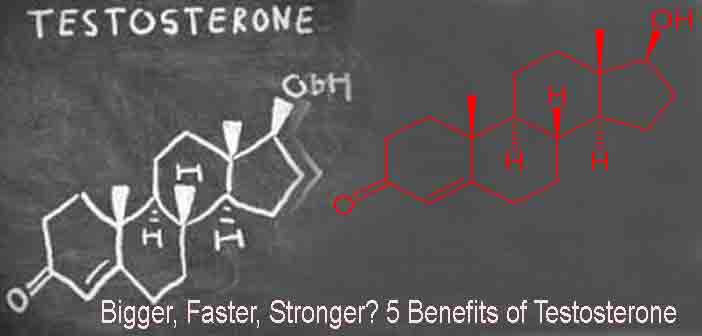What Is Testosterone?
Testosterone is a hormone that is produced primarily in the testicles and is essential to the development of male growth and masculine characteristics. Testosterone production peaks during adolescence and early adulthood. After that, it’s natural for levels to drop slightly each year.
Testosterone plays a key role in the creation of muscle mass and strong bones. It’s also responsible for the development of men’s deeper voices, and it contributes to sex drive too. Low testosterone levels in a man is called hypogonadism.
Women have testosterone too, but in much lower amounts. In women, the ovaries and adrenal glands produce testosterone.
1. Healthy Heart and Blood
A healthy heart pumps blood to the rest of the body, providing muscles and organs with the oxygen needed for peak performance.
Low testosterone levels are linked to a variety of cardiovascular risks. According to Harvard Medical School, testosterone replacement therapy can widen coronary arteries. This may be helpful for men with angina, chest pain, and pressure when your heart doesn’t get enough blood.
Testosterone also can cause red blood cell counts to rise, which is a good thing if you have anemia (low red blood cell count).
3. Better Libido
Testosterone levels naturally rise in response to sexual arousal and activity. Testosterone levels fall off during long periods of abstinence. In turn, more testosterone boosts sexual desire, continuing the cycle. Testosterone has been shown to have a positive effect on a man’s sexual drive and performance.
Testosterone also affects a woman’s sex drive. According to the Mayo Clinic, there aren’t many studies about long-term safety in women, so doctors may be reluctant to prescribe it.
4. Improved Mood
Testosterone levels naturally rise in response to sexual arousal and activity. They drop during long periods of abstinence. In turn, more testosterone boosts sexual desire, continuing the cycle. According to Harvard Medical School, testosterone has a positive effect on a man’s sexual drive and performance.
Testosterone also affects a woman’s sex drive. According to the Mayo Clinic, there aren’t many studies about long-term safety in women, so doctors may be reluctant to prescribe it.
Side Effects and Risks
Side effects of testosterone therapy include acne, fluid retention, and increased urination. Less common side effects include breast enlargement and decreased testicular size.
Prescription testosterone treatments are available as gels, skin patches, and intramuscular injections. Each comes with potential side effects. When using gels, you must be careful not to transfer the gel to others. Patches can irritate skin. Intramuscular injections may cause mood swings.
Testosterone treatment is not advised for men with prostate or breast cancer. In older people, testosterone therapy may worsen sleep apnea. Testosterone treatment can decrease sperm count and increase aggressive behaviors.
Considering Testosterone Replacement Therapy?
Testosterone replacement therapy can be beneficial for men with low testosterone levels. A blood test can determine your testosterone levels and help diagnose underlying conditions.
If your levels fall within the normal range, treatment is not necessary. If you think you might have low levels of testosterone, see your doctor.
Doctors and researchers have varying opinions regarding effectiveness. The experts at the Mayo Clinic say that study results are mixed. For maximum effectiveness, maintain a healthy diet and exercise regularly. Don’t purchase testosterone without a prescription. Follow-up care and monitoring is recommended.

